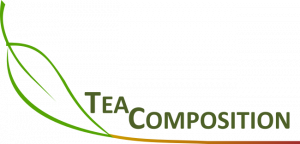Outputs, benefits, data and IPR
The data will be collected in a common database with conditional access for all to data from the network. This database will allow syntheses and assessment of the tea decomposition across the network and including the evaluation of the influence of key drivers of change (climate, soil, management, tree species, plant diversity etc.) on key processes and potentially the relationship of this tea dynamic to local litter quality. In addition, the database will be aligned with similar databases for other corresponding ecosystem networks allowing for global analyses and model applications.
The data will be available to all partners in the network who contributed and can be conditionally used meaning that open processes will be applied where everyone will be notified and asked for the use of their data and with a chance to interfere.
It is intended that one high level syntheses paper will be produced based on this activity and all sites who contributed will be offered co-authorship for this. For further papers, we will adopt the same data policies as used in other global networks (ILTER, NutNet, Drought-Net etc.) and follow the Vancouver guidelines. This means that site data can be used by others without automatically leading to co-authorship rights accepting that co-authorship requires academic and scientific input that is not fulfilled by contributing data alone. Further co-authorship rights therefore require more substantial inputs than just the data.
Expected outputs
- Common database for the network with access for all data contributors
- Aligned database with other corresponding global databases
- One High-level publication including all participating partners. Deadline for the publishing the outcomes of short term litter data (3 months) should be within 1 year after collection of data. All data providers will be offered co-authorship for this.
- Future possibilities for local, regional and large-scale analyses of short (3 months) and long term (up to 3 yrs) litter and carbon dynamics related to key drivers of change
- For further papers, we will adopt the same data policies as used in other global networks (ILTER, NutNet, Drought-Net etc.) and follow the Vancouver guidelines. This means that site data can be used by others without automatically leading to co-authorship rights accepting that co-authorship requires academic and scientific input that is not fulfilled by contributing data alone. Further co-authorship rights therefore require more substantial inputs than just the data.
- Future possibilities for model collaboration based on tea and local litter dynamics.
